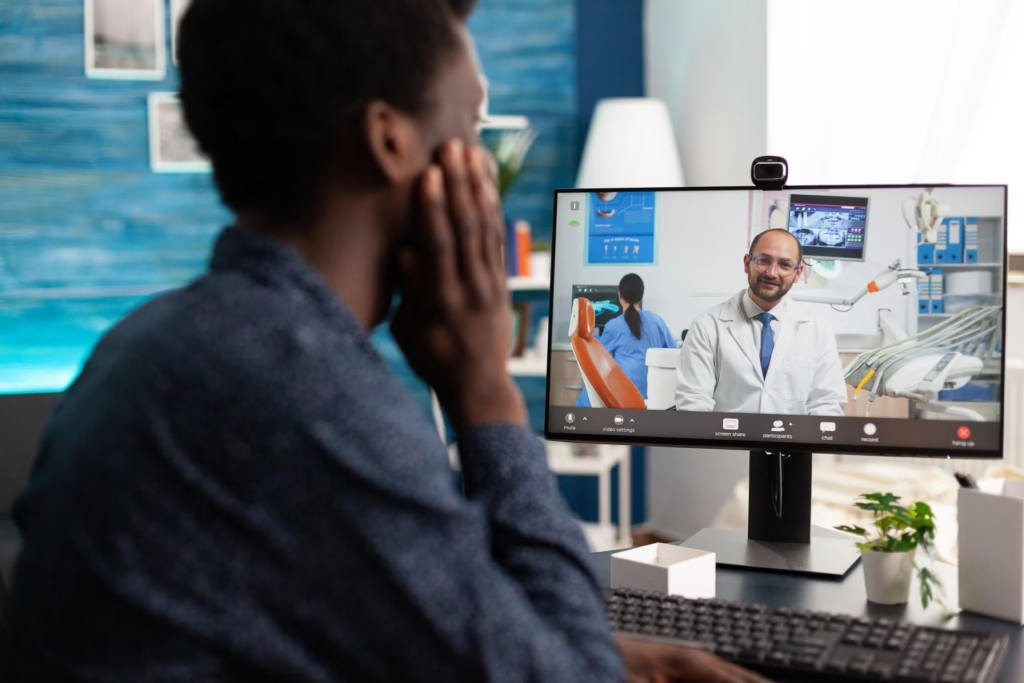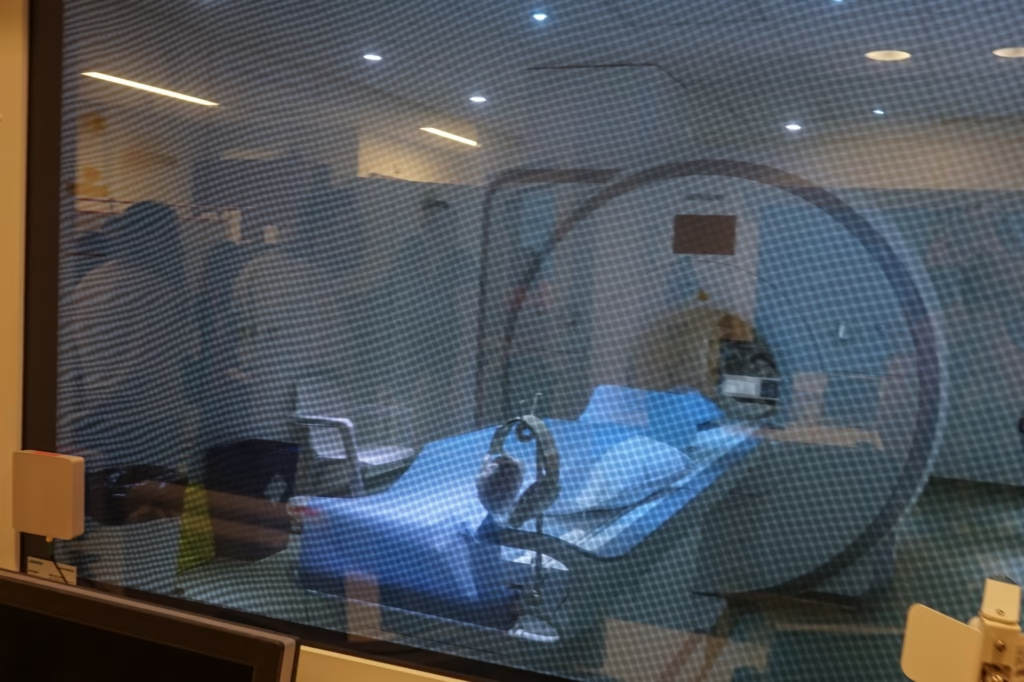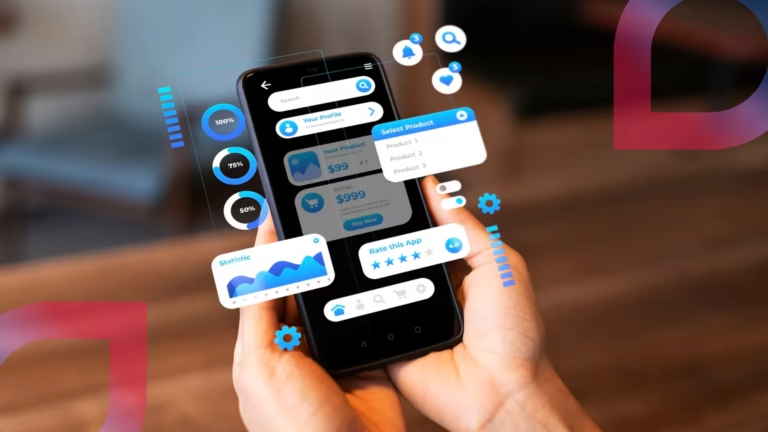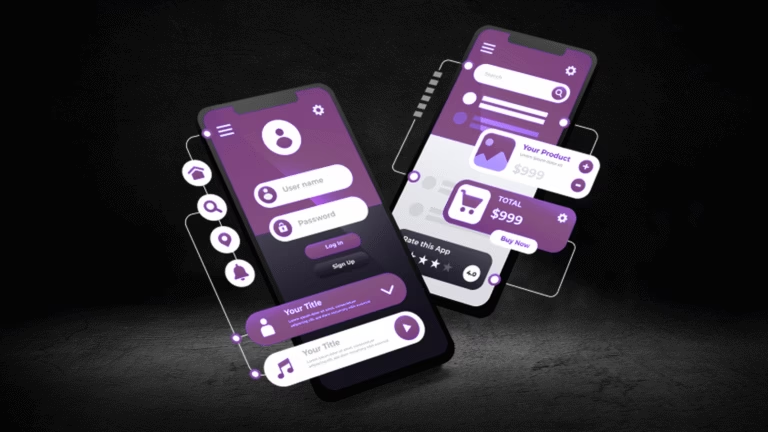
Introduction to Healthcare Mobile Apps
The integration of technology in healthcare has led to a significant transformation in the way services are delivered and accessed. As the demand for efficient, patient-centered care continues to rise, mobile applications have emerged as vital tools in the healthcare sector. Healthcare mobile applications, such as Practo, exemplify how technology can enhance patient experience and streamline operations. These applications enable users to easily schedule appointments, access medical records, and communicate with healthcare professionals, ultimately improving the overall quality of care.
With the proliferation of smartphones, the accessibility of healthcare information has expanded dramatically. Patients can now utilize mobile apps to take charge of their health, access resources, and even consult with medical practitioners from the comfort of their homes. This shift in dynamics has made it essential for healthcare providers to develop mobile applications that cater to the evolving needs of patients. Furthermore, with features that promote telemedicine and remote monitoring, mobile applications are well-positioned to meet the demands of an increasingly tech-savvy population.
As the healthcare landscape continues to evolve, the opportunity for custom mobile development work becomes paramount. Companies like Infotyke are at the forefront of this innovation, helping healthcare organizations to conceptualize and implement mobile applications that meet specific requirements. By understanding the unique challenges faced within the sector, these development teams can create tailored solutions that enhance patient engagement and improve healthcare outcomes. The advent of such applications not only benefits patients but also provides healthcare providers with data-rich insights that facilitate informed decision-making and resource allocation.
In an era where convenience and efficiency are imperative, the potential for adopting healthcare mobile applications like Practo is immense. The increasing reliance on technology in healthcare signifies a shift towards a more connected and responsive system, one that promises to make healthcare more accessible and effective than ever before.
Understanding the Features of an Ideal Healthcare App
In the rapidly evolving digital landscape, the need to develop a reliable mobile application in the healthcare sector has become increasingly crucial. An ideal healthcare application, such as Practo, must incorporate features that ensure user-friendliness, improve patient engagement, and enhance the overall quality of care. Here we explore some essential features that should be considered during the custom mobile development work.
One of the primary features is appointment scheduling, which allows patients to book, modify, or cancel appointments with healthcare providers effortlessly. A user-friendly interface can facilitate this process while reducing no-shows, thus improving healthcare providers’ efficiency. For instance, incorporating a calendar synchronization feature can enable patients to receive reminders for upcoming appointments.
Telemedicine capabilities have gained immense importance, especially in recent times, as they offer a convenient alternative for consultations. Enabling video conferencing within the app allows patients to communicate with healthcare professionals from the comfort of their homes. This feature expands access to healthcare, particularly in remote areas where medical facilities may be limited.
Furthermore, effective patient records management is critical in providing personalized healthcare services. A robust mobile application should allow users to access their medical history, test results, and treatment plans securely. This functionality not only promotes transparency but also equips patients with necessary information for informed decision-making regarding their health.
Lastly, prescription tracking is another vital aspect of healthcare applications. Patients should be able to view their prescribed medications, track refills, and receive reminders for adherence to prescribed treatment plans. Implementing this feature can significantly contribute to better health outcomes by ensuring patients follow their medication regimens accurately.
Incorporating these features within a healthcare app like Practo with the assistance of a professional development partner such as Infotyke will lead to a more effective and user-centric mobile application.
The Role of Infotyke in Mobile App Development
Infotyke is a prominent player in the field of custom mobile development, particularly within the healthcare sector. With an extensive portfolio showcasing successful projects, Infotyke has established itself as a reliable partner for organizations aiming to enhance their services through technologically advanced mobile applications. The company’s focus on healthcare solutions is driven by a commitment to improving patient outcomes and streamlining operations, which is particularly vital in a sector that demands precision and efficiency.
One of the key advantages of collaborating with Infotyke is its wealth of expertise in developing mobile applications like Practo, which have successfully transformed healthcare delivery. Infotyke employs a team of seasoned professionals skilled in various programming languages and platforms, ensuring that innovative solutions are both functional and user-friendly. This technical proficiency enables the company to navigate the intricate challenges of healthcare regulations while integrating the latest advancements in technology.
Furthermore, Infotyke emphasizes a client-centric approach, working closely with stakeholders to identify their unique needs and objectives. This collaborative methodology allows for the creation of tailored applications that align with specific requirements, ensuring that the end product enhances user experience and satisfies industry demands. The company has developed several applications that not only cater to healthcare providers but also facilitate seamless communication between patients and clinicians.
In addition to technical skills, Infotyke places a strong emphasis on quality assurance and adherence to best practices throughout the mobile app development process. This meticulous attention to detail fosters trust and reliability, leading to successful project outcomes. As healthcare continues to evolve rapidly, investing in a partnership with Infotyke for mobile application development represents a strategic advantage for organizations looking to stay ahead of the curve.
Steps to Develop Your Healthcare App
Developing a healthcare mobile application requires a systematic approach, ensuring that the final product is both user-friendly and functional. The process begins with thorough market research. Understanding the current landscape is essential for identifying gaps that your application can fill. Analyzing competitors, particularly established platforms like Practo, will provide insights into what works and what doesn’t in the healthcare sector. This analysis not only helps in recognizing trends but also in carving out your application’s unique selling proposition (USP).
Once you have a grasp on the market, the next step is to define your target audience. It is crucial to understand the demographics and behaviors of potential users. Whether your application targets patients, healthcare professionals, or both, tailoring your approach based on these insights will enhance user engagement. Collaborating with a skilled partner like Infotyke can aid in gathering this data effectively, as they bring expertise in custom mobile development work tailored for the healthcare industry.
After understanding your audience, the focal point shifts to finalizing the features of your application. It is important to determine which functionalities are essential, such as appointment scheduling, telemedicine capabilities, or access to medical records. Engaging in discussions with stakeholders can provide valuable feedback at this stage. Prioritizing features that enhance user experience while complying with healthcare regulations is crucial.
The prototyping phase comes next, where you create a minimum viable product (MVP). This prototype allows for user testing and feedback collection, ensuring that your development aligns with user needs. This iterative process is vital in refining the application. Throughout these steps, maintaining effective communication with your development team, like Infotyke, is key to the successful creation of a healthcare app that resonates with users and fulfills its purpose.
User Interface and User Experience Design
In the realm of healthcare mobile applications, the role of User Interface (UI) and User Experience (UX) design cannot be overstated. A well-crafted UI/UX is critical in ensuring that users can seamlessly navigate the application, allowing for an enhanced interaction that ultimately leads to better healthcare outcomes. This is particularly vital in applications like Practo, which cater to a diverse audience ranging from tech-savvy millennials to older adults who may not be as familiar with technology.
The principles of effective UI/UX design include clarity, simplicity, and accessibility. Clear and intuitive navigation ensures that users can find the information they need without frustration. This is especially important in a healthcare context, where users may be under stress or pressure when seeking medical assistance. For instance, the use of familiar icons, straightforward layouts, and user-friendly instructions can significantly demystify the process of booking appointments or accessing medical records.
Moreover, accessibility features are essential in developing mobile applications in the healthcare sector. Designing with all users in mind, including those with disabilities, is not just a regulatory requirement but also an ethical obligation. Implementing features such as voice commands, text resizing, and high-contrast color schemes can make the application more accessible to a broader audience, thereby enhancing overall user engagement.
Examples from existing healthcare applications illustrate these best practices effectively. For instance, many successful apps utilize color coding to categorize services and information, making it easier for users to understand their options at a glance. Similarly, incorporating feedback mechanisms, such as simple rating systems after service use, can help gather essential insights to continuously improve the UI/UX design.
In the development of healthcare applications like Practo, focusing on UI/UX design not only contributes to user satisfaction but also reinforces the overall brand reliability. Thus, partnering with an expert in custom mobile development work, such as Infotyke, can significantly elevate the quality of your application, ensuring that it meets the diverse needs of its users effectively.
Technology Stack for Healthcare Apps
In the realm of developing a healthcare mobile application, selecting the appropriate technology stack is a critical decision that influences both functionality and compliance. A robust technology stack consists of various programming languages, frameworks, and tools that enhance the performance, security, and scalability of healthcare applications such as those offered by Practo. This ensures that applications meet the complex needs of healthcare providers and patients alike.
At the foundation of any mobile application, the programming languages play an essential role. For Android applications, Kotlin and Java are popular choices due to their extensive support and features. For iOS applications, Swift and Objective-C are recommended for their native capabilities. When looking to develop mobile applications that cater to diverse platforms, cross-platform frameworks like React Native and Flutter become beneficial, allowing for a more streamlined custom mobile development workflow.
Frameworks provide tools and libraries that simplify the development process while enhancing the application’s user interface and experience. For healthcare applications, frameworks like Angular and Vue.js are advantageous for front-end development, enabling a responsive and dynamic user experience. On the back-end, robust frameworks such as Node.js and Django ensure that the server-side logic is efficient and secure, handling vast amounts of data and user requests effectively.
Additionally, integrating secure database solutions is vital for storing sensitive healthcare information. Options like PostgreSQL and MongoDB provide a secure and scalable environment for data management. Security is paramount, especially when dealing with health-related data, making the inclusion of tools for encryption and authentication essential in the technology stack. Ultimately, the chosen technology stack must not only cater to performance and scalability but also comply with industry regulations to ensure trust and reliability in the healthcare sector.
Regulatory Compliance and Data Security
In the process of developing a healthcare mobile application, such as Practo, one of the most crucial aspects to consider is regulatory compliance and data security. Given the sensitive nature of healthcare data, applications must strictly adhere to industry regulations like the Health Insurance Portability and Accountability Act (HIPAA) in the United States and the General Data Protection Regulation (GDPR) in Europe. These regulations serve to protect patient privacy and ensure that personal health information is handled with the utmost care.
When embarking on a project with a custom mobile development work provider like Infotyke, it is imperative to prioritize compliance from the beginning. This includes conducting thorough research to understand the specific regulatory requirements that apply to your application based on the region and the healthcare practices it intends to serve. Engaging with legal experts during the planning phase can provide valuable insights into necessary measures and help streamline the development process.
Incorporating robust security measures is essential for protecting sensitive health data. This may involve utilizing encryption technologies to safeguard data transmission and storage, implementing access controls to limit information availability to authorized personnel only, and regularly conducting security audits to identify potential vulnerabilities. Additionally, educating your development team about the importance of secure coding practices can substantially mitigate risks associated with data breaches.
Furthermore, it is vital to stay updated on the evolving landscape of healthcare regulations. As new laws emerge and existing ones are amended, regularly reviewing your mobile application against these changes will ensure ongoing compliance. Collaborating closely with Infotyke, who is familiar with healthcare industry standards, will facilitate a smoother navigation of compliance challenges throughout the app development process.
Testing Your Mobile Healthcare Application
In the process of developing a mobile application, particularly in the healthcare sector, rigorous testing is paramount to ensure the app functions effectively and meets the needs of users. Infotyke takes a structured approach to testing, incorporating multiple testing phases to guarantee the highest quality in custom mobile development work. The first phase is functional testing, which ensures that all features of the application operate as intended. This includes checking functionalities that facilitate basic tasks such as appointment scheduling, teleconsultations, and prescription management. Functional testing helps identify and rectify any potential glitches that might impede the user’s experience.
Usability testing follows closely behind. In this phase, the app is evaluated for its user-friendliness and overall experience. Given that healthcare applications must cater to diverse demographics, usability testing focuses on how intuitive the app is for various users, including older adults and patients with limited technological proficiency. By observing real users interact with the app, the team at Infotyke can gather valuable insights on design and navigation improvements to enhance accessibility and engagement.
Performance testing is also critical in healthcare mobile application development. This phase assesses the app’s scalability, response times, and its capacity to handle a high volume of users concurrently. In an emergency or during peak usage, the app must function seamlessly without crashes or delays. Infotyke employs advanced testing frameworks to simulate various scenarios, ensuring that the application not only performs well under normal conditions but also excels during high-demand situations. By thoroughly engaging in these testing phases, Infotyke can confidently deploy mobile applications that serve the healthcare industry effectively, reflecting excellence and reliability in every user interaction.
Launch and Post-Launch Strategies
The successful launch of a healthcare mobile application, such as those similar to Practo, requires meticulous planning and execution, complemented by tailored post-launch strategies. One of the primary objectives during the launch phase is to develop an effective marketing strategy that clearly communicates the application’s value proposition to the target audience. Engaging healthcare professionals and users through social media platforms, webinars, or informative blog content can create initial interest and drive downloads.
Furthermore, leveraging partnerships with healthcare providers or organizations can enhance visibility and credibility. This can be particularly effective for a custom mobile development project aiming to meet specific healthcare needs. A strategically timed influencer marketing campaign featuring professionals in the healthcare industry could also yield positive results, generating essential buzz around the application.
After the launch, the focus should shift towards gathering user feedback. Effective mechanisms for collecting insights, such as in-app surveys or follow-up emails, are essential for understanding user experience. This feedback can highlight potential pain points or desired features, which are crucial for guiding future updates and improvements. Engaging users actively in this process fosters a sense of investment in the app, promoting user loyalty and retention.
Maintaining the application’s relevance post-launch is pivotal. Regular updates that incorporate user suggestions or technological advancements help sustain user engagement. Infotyke can provide professional support to ensure seamless updates and enhancements, thereby facilitating the ongoing success of the app. Additionally, it is vital to monitor the application’s performance metrics, such as user retention rates and engagement levels, adapting strategies accordingly to meet evolving healthcare demands. By utilizing these launch and post-launch strategies, the mobile application can thrive in the competitive healthcare ecosystem.








